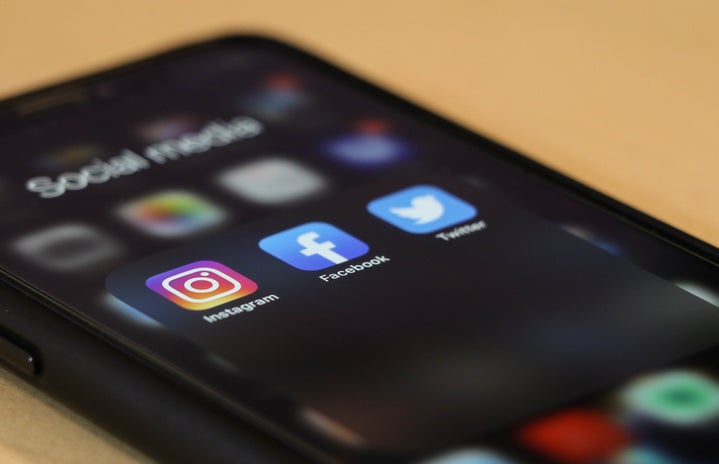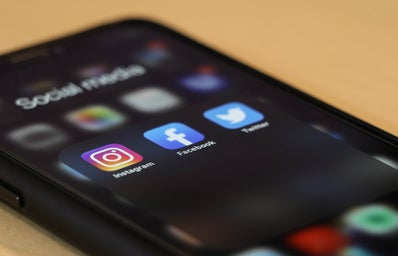If you’re a content creator or have ever used an app that requests META login you might have noticed some issues logging in or reconnecting in the past few months. Linking your Instagram or granting Facebook access has gotten more complicated than it looks.
It’s not just you! And though the issue has been silently normalized, platforms know that major bugs aren’t meant to be vetted by users anymore. That is an era of the internet reserved for its birth. Or for pilot programs and prerelease app-testing.
Yet recently many third-party apps and platforms have been on a virtual (ha ha) standstill as their login requirements failed again and again, as users tried to connect with their Instagram accounts through META integrations.
Platforms like the popular product-testing app Skeepers were emblazoned with a notification that their Instagram connection was down and that ‘the issue was out of their control’—possibly a notice finally put up in plea for users to stop contacting them to fix it.
“UNUM”, the popular feed-planning app where you can schedule content to post is having the same connectivity issue. Login to Instagram won’t register users after signing in and redirects users back to the home page. Picky Creators, a Korean product testing site was also having this problem persist for a little over three weeks.
HerCampus Media isn’t immune to these issues either, and their model may make creators the most vulnerable to the negative effects of technical errors when they do sporadically pop up.
Users are prompted to reconnect their Instagram to be eligible for campaign entries. However, eligibility is affected even for applications that have already been submitted, or for accessing certain platforms. Users who went to reconnect recently have received Oauth, URL, and whitelisting error messages upon attempting to log in and could not refresh the connection as prompted.
The Later (formerly Mavrck) help desk engineers have since investigated and fixed the issue. However, it took several days and proactive users to alert the teams and identify the errors.
This can create problems for users who rely on product testing and social media as well as apply to limited campaigns in hopes of being approved. Being told a technical error has disqualified them or otherwise hurt their chances at developing or posting content is disappointing, but what is worse is not hearing any explanations at all about campaign acceptance even when contacting the platforms. The platforms then deal with a growing sense of frustration and dissatisfaction, and complaints across comment sections and e-mail.
Are these errors all linked or mere coincidences? Did Facebook recently update it’s third-party app connections and not tell anyone?
“According to UNUM, META integrations were the cause of the issue. The UNUM support team notified me that “[their] engineers were able to detect the issue and it’s due to Meta applying new requirements in linking 3rd party apps. Rest assured that we have processed an update of UNUM’s access to IG integrations.”
UNUM
Additionally, according to Later Influence’s help desk app and platform outages can cause a “reset” in their servers and cause errors for externally based parties. “As seen recently with the Meta outage a few days ago, if Meta has an outage it does affect other third parties and can sometimes leave lingering issues with authenticating.”
Instagram outages also tend to cause major loss of revenue for content creators, which can remind creators of the monopoly a single platform can have on our business and professional lives.
The help desk recommended that “If you ever do have an issue, just like you did, reach out to that company and provide them with any screen recording of the issue as this can help them resolve or report that issue to the third party.”
Unfortunately, reaching out for a tech fix doesn’t usually solve the issue of negative or punitive disqualifications in the meantime, and oftentimes the tech team is not working in tandem with the PR team to resolve the unhappy impressions left by these experiences on users.
The lack of a smooth transition for these companies or any public update from META seems to have left developers and back-end tech scrambling to make their platforms functional. This is particularly problematic for programs like UNUM which charge fees and “pro” pricing to plan content. Sites need to remember that users might be doubling as consumers, who don’t take kindly to being locked out of their linked accounts and feeds seeing as that is the entire point of paying for the service.
I contacted both the META and Facebook as a press representative for comment, but have not yet received a response at the time of publishing.
META itself is so insulated from receiving feedback due to their entirely automated help model that users can’t flag them on niche technical issues like these. Even the companies they partner with can’t seem to get their attention.
When a ‘what-was-meant-to-be-routine’ update starts causing industry-wide outages, something clearly isn’t working.
Worse, no one within the industry seemed to have a pulse on the fact that the outage was widespread.
More collaboration between the vertical power levels of the host or integration site and the distributors, or even a non-automated helpline in META could take much of the burden off of users. This could improve operations so that third-party businesses are not blindsided by potential updates in the future.
Third-party businesses should also reconsider their signup model and the hinging of profile status and “eligibility” around Instagram connectivity. Or at the very least have measures in place for hiccups like this, where tech staff could manually override or add approved accounts to a temporary database so users don’t suffer from a loss of campaigns or app access due to a technological difficulty they can’t control.
For instance, as of April a similar product-testing platform known as COMMUNITYXSEEN is currently experiencing problems with Tiktok user authentication and campaign signups as well.
Luckily, when I reached out, the program offered to manually add users to the campaigns they were blocked from and had a very positive user response. This could offer a better model for other brands to follow in the future instead of leaving users in the dark.
Overall, third-party authentications seem to be a somewhat unreliable method at times. Let me know your thoughts and if you’ve been having any of these issues, or work within these companies and would like to reach out to me, you can find me at @reannarobelin on Instagram!


